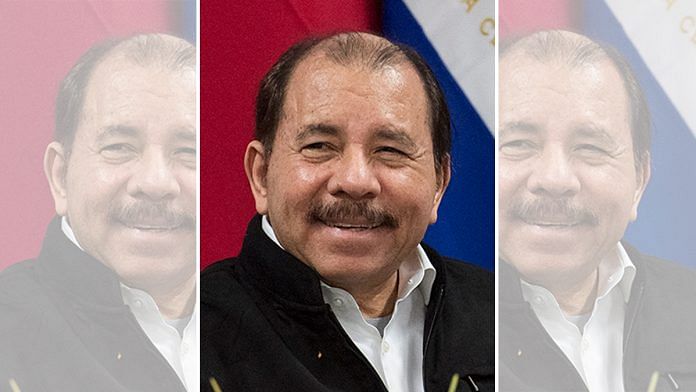New Delhi: With a missing president and a total disregard of social distancing norms, Latin American country Nicaragua is emerging as a radical exception to the global fight against the coronavirus pandemic even as countries across the world are trying to impose various lockdown to curb the spread of the infection.
The Nicaraguan government is ignoring all norms set by the World Health Organization (WHO) and is actively encouraging its citizens to go to the beach and enjoy holidays.
Moreover, what truly sets the Latin American country apart is the vanishing act by its president, Daniel Ortega. Ortega has not been seen in public for over a month, his last public appearance was on 12 March. Speculations are rife about his disappearance, with many wondering if he is under self-isolation, hospitalised or even dead. There has been no official notification regarding his absence.
The government, however, maintains that Ortega is still in charge. In his absence, Vice President Rosario Murillo, who is also Ortega’s wife, has been taking calls from the media.
While the country has registered only nine cases of Covid-19 and one death, experts say this is because of lack of testing. “If you only do a few tests, you’ll only have a few positive results,” said Josefina Bonilla, a doctor and public health expert in the country’s capital, Managua.
Also read: From Portugal to Sweden, Covid-19 border controls hit economic migration
Government refuses to shut shops, schools
The Nicaraguan government has refused to close shops, businesses, stadiums and borders — ignoring all WHO guideline. The last international flight took off from the capital city Managua on 7 April, while Nicaragua’s borders are open, international flights have been suspended in other countries.
The government also sponsored political rallies including a march through the capital — ‘Love in the time of Covid-19’ — to show support to those infected across the globe.
The health ministry of the country continues to insist that they have not yet reached the community transmission stage as the other Latin American countries, which are either in partial or total lockdown.
Several international organisations have expressed concern about the government’s lack of action towards the pandemic.
“We have concerns for the lack of social distancing, the convening of mass gatherings. We have concerns about the testing, contact tracing, [and] the reporting of cases. We also have concerns about what we see as inadequate infection prevention and control [in Nicaragua],” said Dr Carissa Etienne, director of Pan American Health, an international public health organisation.
Leaders from neighbouring countries have also expressed concerns about the irresponsible reaction of the government in Nicaragua and the possible fallout of the move. In an interview with CNN, Carlos Alvarado, President of Costa Rica said, “We’re worried about their approach, because the recommendations of the [World Health Organization] are for social distancing.” Costa Rica has reported 595 positive cases and three deaths.
Also read: Passengers of cruise to nowhere spend Easter on ‘Ghost Ship’
Citizens practice social distancing
However, despite the government’s inaction, the Nicaraguan citizens have taken matters into their own hands. Churches are now live streaming masses to avoid crowding, private schools have also switched to online classes and beaches remain largely empty.
While the country may enjoy certain advantages such as its low population of 66.2 lakh and a median age of 26.5 years, it is still the second-poorest country in the Western hemisphere. Citing the country’s listless economic condition, former foreign minister José Pallais said the government is afraid of what a pandemic could do to it.
The once fast-growing Nicaraguan economy collapsed after the suppression of pro-democracy protests in 2018 and Ortega’s government turned more authoritarian after this.
One of Latin America’s best-known politicians, Ortega toppled right-wing dictator Anastasio “Tachito” Somoza DeBayle in 1979. He came back to power in 2007 and has won elections twice since then.
Also read: Covid to plague — Pandemics have always been the perfect petri dish for conspiracy theories



